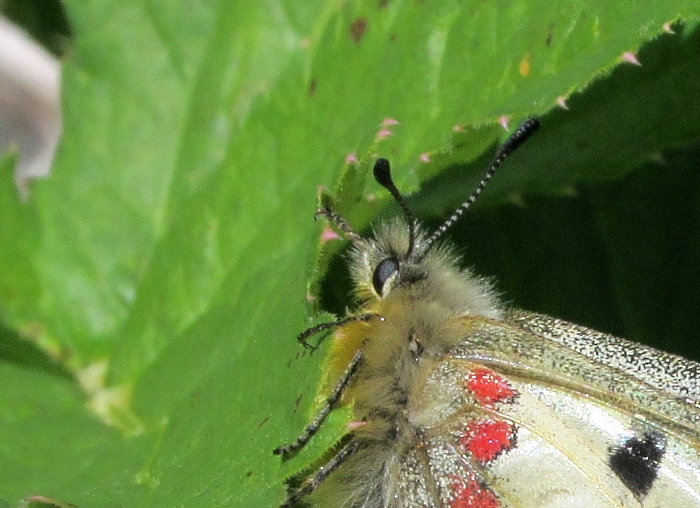
Male, Switzerland, July 2017

The same individual, showing the striped antennae (c.f. the Apollo)

Switzerland, July 2006

Male, Switzerland, July 2006

The same male, just barely showing the red in the costal marks of the forewing

Female, showing prominent red

The same female

This butterfly has long been
known as Parnassius
phoebus
but it has recently been established (beyond reasonable doubt - this is
not controversial) that this name was based entirely upon a
misidentification of an already named butterfly, Parnassius ariadne.
What remains controversial is the correct name to be used for our
alpine populations. Some (Leraut, 2016, for example) say these are Parnassius corybas sacerdos,
and
that is the convention I follow here. Others (Hanus
&
Theye, 2010) suggest corybas
be applied only to the Asian populations, the alpine ones being Parnassius sacerdos.
Whatever its name, the
butterfly itself is
a well defined taxon and relatively easy to identify. The
male is strikingly white compared to a male Apollo (the black spot near
the trailing edge of the forewing being absent or greatly reduced) and
has a small
amount of red in the postdiscal costal markings. The female has a
substantial amount of red there. Another useful feature is the
antennae, which are striped black and white/grey in this species but
much more uniformly grey in the Apollo.
The small Apollo is more
local than the
Apollo but
widely distributed in the Alps. I come across it less often and have
yet to get a really good series of photos.